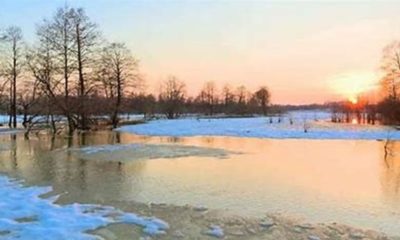NATO
How Russia’s elite profited from a NATO exercise -and triggered a spy scare

Russian-owned holiday cabins were rented for military use during the recent Nordic Response NATO exercise. Norwegian television channel TV2 has reported that at least two Russian politicians close to Vladimir Putin are among the cabins’ owners. The holiday location, in northern Norway, overlooks a military base, writes Political Editor Nick Powell.
In March, Norway hosted Nordic Response, part of NATO’s Steadfast Defender 24 military exercise. It involved over 20,000 soldiers from at least 14 countries, whose forces trained in northern Norway, Sweden and Finland, on land, in the air and at sea. Steadfast Defender was the largest NATO exercise in decades, aimed at testing the alliance’s new defence plans, prepared in response to the increased threat from Russia.
But an investigation by the Norwegian police security service, PST, has found that both the Norwegian and Swedish armed forces rented Russian-owned holiday cabins. The cabins have a view down to the military airbase at Bardufoss, where Norwegian and allied units train regularly.
The television channel TV2 has linked several of the cabins to the Russian political elite, including the mayor of Murmansk, Igor Morar, a member of President Vladimir Putin's United Russia party. Another owner is the Russian politician Viktor Saygin, who has close ties to the Russian military. The management of the cabins say they were unaware of the Russian owners’ political connections but confirmed that the military sometimes rent their property.
A PST spokesperson confirmed to TV2 that the security service has carried out an investigation related to these cabins “over a period of time” but would not be drawn on how long it’s been going on or why exactly the PST had got involved. It appears that it is to do with more than the rental arrangements, although the spokesperson added that “when the landlord is a Russian citizen, who may be connected to the Russian regime, it is not unimportant who they rent to”.
The head of counterintelligence at PST, Inger Haugland, has confirmed that the threat from Russia and Russian intelligence against Norway has intensified, with the armed forces and allied military activity a particularly vulnerable target. In several threat assessments, most recently this year, PST has warned against exactly such property purchases as the cabins at Bardufoss.
“We point out that foreign states, including Russia, buy property in order to gain insight into Norwegian conditions which may come at the expense of Norwegian security interests”, said Inger Haugland, as “access to properties can give Russian intelligence services access to information they would not otherwise have”. She emphasised that it is not necessarily criminal to make purchases that may compromise Norwegian security interests but that this is a problem that could perhaps be regulated or taken care of in other ways.
This year's threat assessment states that "Russia will mainly use such means to cover its military and technological needs, for example by buying property that is strategically located in relation to Norwegian military installations”. The National Security Authority (NSM) has also pointed to the challenge for a number of years. In their risk assessment in 2023, they write that foreign acquisitions of strategically located property could be a threat to Norway’s national security.
Ahead of the NATO exercise Nordic Response, which took place all around the Bardufoss airbase -and the Russian-owned cabins- the authorities asked the public to tip them off about any suspicious activity. Norwegian Prime Minister Jonas Gahr Støre, has since commented that “we must follow this issue very closely – who owns real estate in Norway, where and whether it could pose a security threat”.
Share this article:
-

 NATO2 days ago
NATO2 days agoEuropean parliamentarians write to President Biden
-

 Environment4 days ago
Environment4 days agoDutch experts look at flood management in Kazakhstan
-

 Conferences4 days ago
Conferences4 days agoEU Greens condemn EPP representatives “at far-right conference”
-

 Aviation/airlines3 days ago
Aviation/airlines3 days agoAviation Leaders Convened for the EUROCAE Symposium, Marking a Return to its Birthplace in Lucerne
























